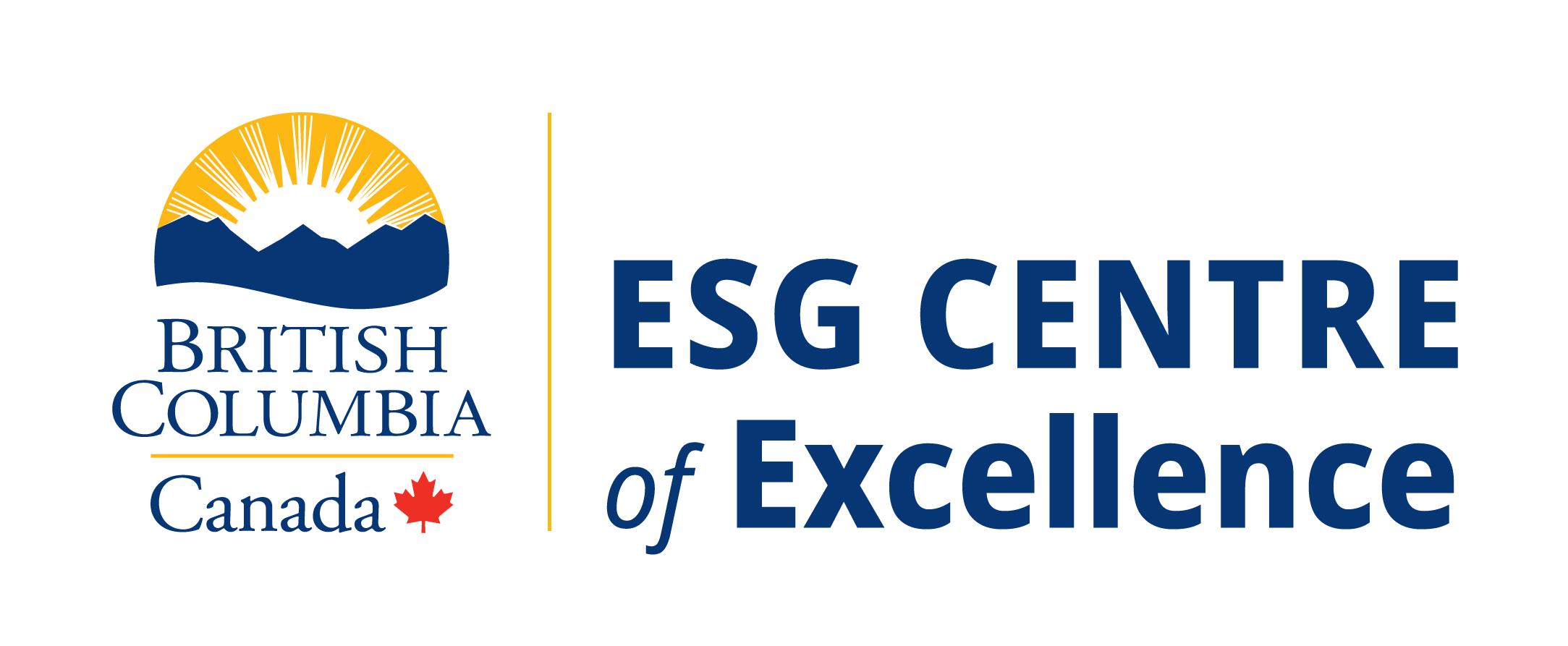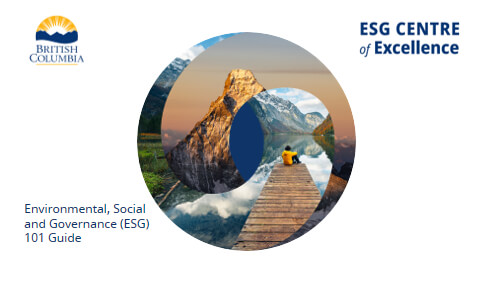What is Environmental, Social and Governance (ESG)?
On this page


What is ESG?
Environmental, Social and Governance (ESG) is a comprehensive framework that looks at organizational impacts on the environment; the treatment of employees, stakeholders and community members; and addresses the quality of governance structures.
These are important factors for businesses in B.C. and go beyond financial accomplishment by creating a deeper set of considerations. By setting and sharing ESG goals, businesses can attract investors, build customer loyalty, and ensure long-term resilience and success, all while contributing to a more transparent and sustainable future.
Why is ESG important?
Embracing ESG can help businesses mitigate risk, thereby creating efficiencies and long-term value. Setting ESG goals is important for organizations, as it demonstrates they are ready to meet the future demands of a changing business environment.
Companies that integrate ESG principles:
- Open doors to new markets
- Attract funding and investment
- Are better prepared to meet regulatory and reporting requirements
- Build trust with partners, investors, consumers, and community
- Strengthen recruitment
- Foster innovation

ESG is made up of three key pillars:
Each pillar of the ESG framework includes measurable topics. Setting goals across all three pillars contributes to long-term, sustainable success.


Environmental
The Environmental pillar assesses a company’s impact on the planet and its natural resources. Key topics under this pillar include:
- Carbon footprint
- Energy efficiency
- Water usage
- Waste management
- Biodiversity

Social
The Social pillar examines how a business affects individuals and communities and how it manages relationships with various stakeholders. Key topics include:
- Diversity and inclusion
- Labour practices and human rights
- Employee and community engagement
- Health and safety
- Supply chain practices



Governance
The Governance pillar evaluates the frameworks and processes a business employs to uphold ethical standards, ensure transparency, and maintain accountability. Key topics include:
- Shareholder rights
- Executive compensation
- Board diversity
- Anti-corruption policies
- Ethical business practices
ESG 101 Guide
Our comprehensive guide is an essential resource and great first step in navigating the world of ESG. Perfect for small and medium-sized businesses in B.C., this guide will help you understand what it means and why it matters, learn how to implement ESG strategies and discover how to measure and report on progress.
What’s inside:
- Definitions and related terms
- Step-by-step guidance on starting your ESG journey
- Tips for how to identify which topics matter to you
- Insights on international ESG reporting frameworks and standards
- Real-world examples relevant to B.C. businesses

